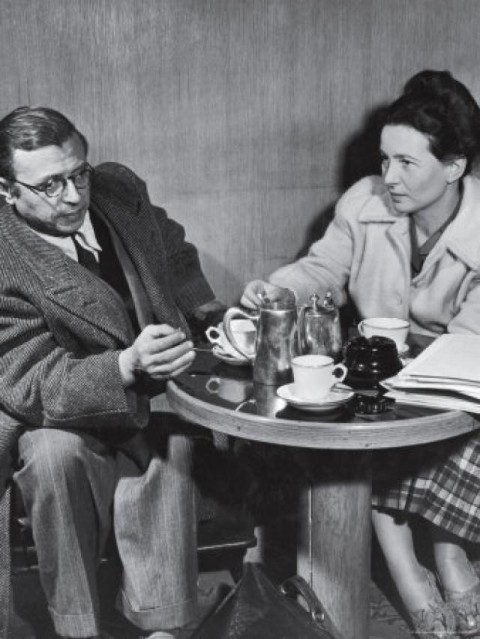Have you ever wondered what it would have been like to be present when Oscar Wilde was delivering those dazzling epigrams of his? In this classic sketch from Monty Python’s Flying Circus, we’re presented with one hilarious possibility.
The sketch is from Episode 39 of the Flying Circus, the last episode of season three, which was recorded on May 18, 1972 but not aired until January 18, 1973. The scene takes place in 1895, in the drawing room of Wilde’s London home. Holding court amid a roomful of sycophants, Wilde (played by Graham Chapman) competes with the Irish writer George Bernard Shaw (Michael Palin) and the American-born painter James McNeill Whistler (John Cleese) to impress Queen Victoria’s son Albert Edward (Terry Jones), the Prince of Wales and future King Edward VII.
As for the historical basis of the sketch, “There seems to be no evidence for the convivial triumvirate of Whistler, Wilde, and Shaw,” writes Darl Larsen in Monty Python’s Flying Circus: An Utterly Complete, Thoroughly Unillustrated, Absolutely Unauthorized Guide, “especially as late as 1895, when Whistler was caring for his terminally ill wife and Wilde was in the early stages of his fall from grace.” Wilde’s play The Importance of Being Earnest opened in February of that year, and shortly afterward he became embroiled in a legal battle with the Marquess of Queensberry that led eventually to his imprisonment for homosexuality. Wilde was once a protégé of Whistler, but their friendship had deteriorated by 1895. Whistler was apparently jealous of Wilde’s success, and believed he had stolen many of his famous lines. When Wilde reportedly said “I wish I had said that” in response to a witty remark by Whistler in about 1888, the painter famously retorted, “You will, Oscar, you will.” Shaw worked as a London theatre critic in the 1890s, and the Prince of Wales was a patron of the arts.
In the Python sketch, Wilde kicks off a round of witticisms with his famous line, “There is only one thing in the world worse than being talked about, and that is not being talked about.” But things go rapidly downhill as the conversation turns into an exercise in heaping abuse on the Prince of Wales and pinning the blame on a rival:
WILDE: Your Majesty is like a big jam doughnut with cream on the top.
PRINCE: I beg your pardon?
WILDE: Um…It was one of Whistler’s.
WHISTLER: I never said that.
WILDE: You did, James, you did.
WHISTLER: Well, Your Highness, what I meant was that, like a doughnut, um, your arrival gives us pleasure…and your departure only makes us hungry for more. [The prince laughs and nods his head.] Your Highness, you are also like a stream of bat’s piss.
PRINCE: What?
WHISTLER: It was one of Wilde’s. One of Wilde’s.
WILDE: It sodding was not! It was Shaw!
SHAW: I…I merely meant, Your Majesty, that you shine out like a shaft of gold when all around is dark.
PRINCE: Oh.
WILDE: Right. Your Majesty is like a dose of clap–
WHISTLER: –Before you arrive is pleasure, and after is a pain in the dong.
PRINCE: What??
WHISTLER AND WILDE: One of Shaw’s, one of Shaw’s.
SHAW: You bastards.
Related Content:
Monty Python’s Best Philosophy Sketches
Watch Monty Python’s “Summarize Proust Competition” on the 100th Anniversary of Swann’s Way
John Cleese’s Eulogy for Graham Chapman: ‘Good Riddance, the Free-Loading Bastard, I Hope He Fries’


